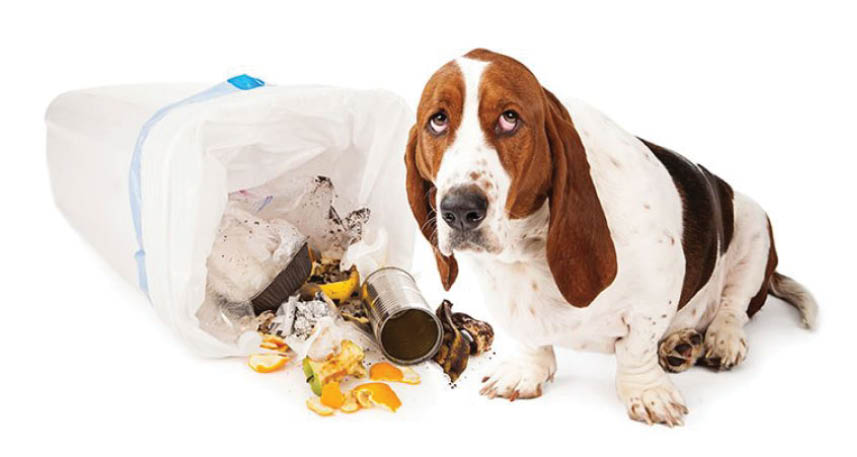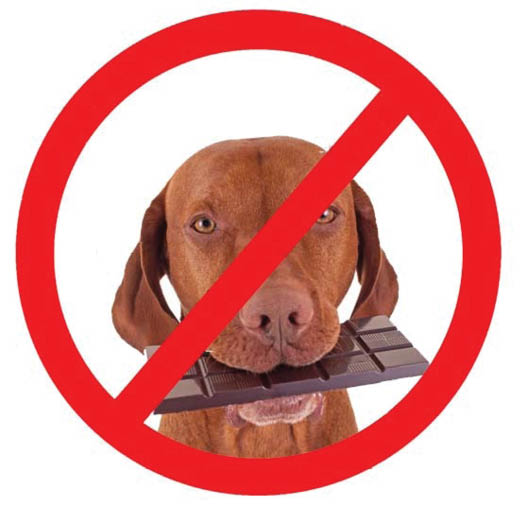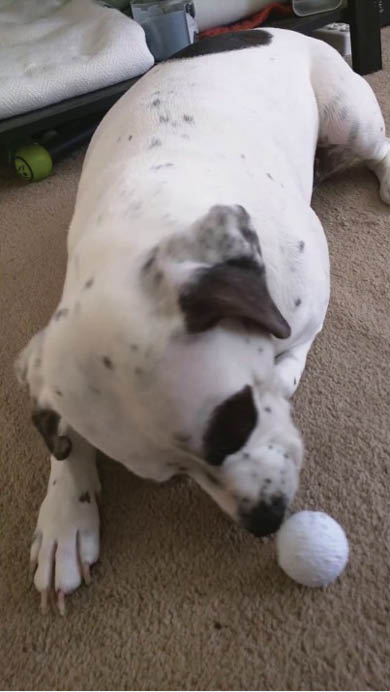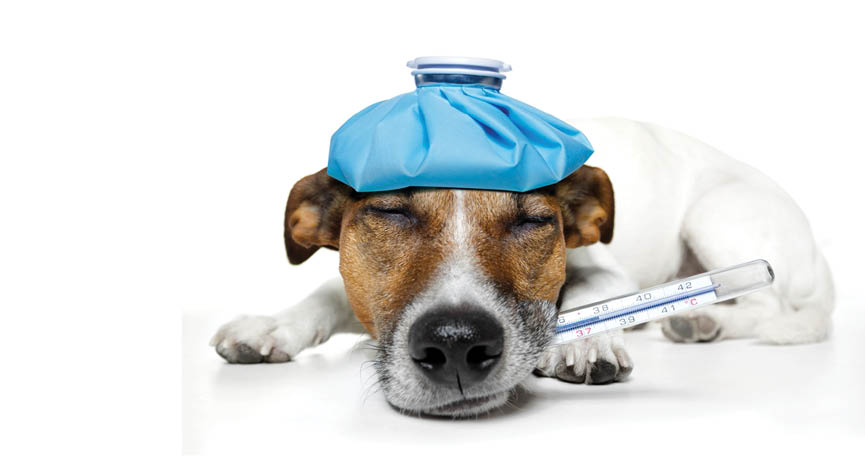Every year thousands of animals needlessly suffer and many die due to accidental ingestion of household poisons. To many pet owners, the innocuous looking plant, or the cigarette butt left in the ash tray or the loose wires may not ring warning bells, but to an inquisitive dog that toys with these items, it could mean death. If you own a pet or are planning to get one, it is important that you dog-proof your home. Here is the second and concluding part of ‘Hidden Dangers’ – enlisting more of the most common poisons that lurk within our homes:
Small Objects – Lose The Change: Parents always make sure that small objects which can be easily ingested are out of a child’s reach. The same goes for young dogs and puppies. Veterinarians have removed objects such as coins, pins, needles, rubber bands, paper clips, staples, nails, screws, blades, thread, earrings and small balls from many a dog’s tummy!!! Small objects can lodge inside a dog’s stomach causing severe gastrointestinal problems or even laceration of the stomach. They can also block the entry and exit, causing the dog immense discomfort and pain. Left untreated, the dog may even die. It is best to keep all loose items safely out of a dog’s reach. Avoid letting your dog play with table tennis balls or golf balls. Any toy your dog plays with should be large enough not to be swallowed.

Garbage Bin – Trash It Carefully: To a dog, a garbage bin can be a very delectable and interesting place to rummage through. Unfortunately, it is filled with items that can be potentially harmful to your pet if ingested. Spoiled foods, chicken bones, plastic wrappers and kitchen foil can all do a lot of damage to your dog’s gastrointestinal tract if ingested – with the symptoms ranging from vomiting and diarrhoea to intestinal perforation and obstruction. Rotten food produces bacteria, which when ingested can cause a dog to go into shock, and in certain cases, even death. So, make sure your garbage bin has a secure lid and is safely out of your dog’s reach at all times.
 Chocolate – Sweet Temptations: This delectable dessert may be good for humans, but is severely toxic to dogs. Chocolate contains large amounts of fat and caffeine-like substances known as methylxanthines, which are poisonous to dogs. If ingested in significant amounts, chocolate could potentially cause vomiting, diarrhoea, panting, excessive thirst and urination, hyperactivity and in severe cases, abnormal heart rhythm, seizures and can even be fatal. The darker the chocolate, the higher the potential for clinical problems from methylxanthine poisoning. White chocolate has the lowest methylxanthine content, while baking chocolate contains the highest. So be safe and keep all chocolate and chocolate products such as cakes, desserts, etc., out of your dog’s reach and avoid feeding your dog even small amounts. Other foods that are potentially toxic to dogs include macadamia nuts, tomatoes, onions, grapes, alcoholic beverages, and chewing gum.
Chocolate – Sweet Temptations: This delectable dessert may be good for humans, but is severely toxic to dogs. Chocolate contains large amounts of fat and caffeine-like substances known as methylxanthines, which are poisonous to dogs. If ingested in significant amounts, chocolate could potentially cause vomiting, diarrhoea, panting, excessive thirst and urination, hyperactivity and in severe cases, abnormal heart rhythm, seizures and can even be fatal. The darker the chocolate, the higher the potential for clinical problems from methylxanthine poisoning. White chocolate has the lowest methylxanthine content, while baking chocolate contains the highest. So be safe and keep all chocolate and chocolate products such as cakes, desserts, etc., out of your dog’s reach and avoid feeding your dog even small amounts. Other foods that are potentially toxic to dogs include macadamia nuts, tomatoes, onions, grapes, alcoholic beverages, and chewing gum.
 Human Medication – The Bitter Pill: Animals have a very different physiology from humans and products which are safe for us can be very harmful to our pets. Common painkillers such as aspirin, paracetamol and ibuprofen are toxic to pets and can be lethal when given. Veterinarians warn that giving even one pill of Ibuprofen can cause stomach ulcerations. Ensure to also keep all medications out of your dog’s reach; cold medicines, antidepressants, vitamins and diet pills are common examples of human medications that could be fatal to a dog even in small doses.
Human Medication – The Bitter Pill: Animals have a very different physiology from humans and products which are safe for us can be very harmful to our pets. Common painkillers such as aspirin, paracetamol and ibuprofen are toxic to pets and can be lethal when given. Veterinarians warn that giving even one pill of Ibuprofen can cause stomach ulcerations. Ensure to also keep all medications out of your dog’s reach; cold medicines, antidepressants, vitamins and diet pills are common examples of human medications that could be fatal to a dog even in small doses.
Even with prescribed veterinary medicine, always stick to the correct dosage and time period prescribed by your vet. Medications meant for external application, especially tick and flea treatments, are another cause for concern as some dogs tend to lick and ingest the application. Most of these medications are high in steroids, toxins and other harmful chemicals and long-term usage of the same may cause mutations in the endocrine system of the animal. All vets emphatically insist that if a pet is ill, it is best to seek veterinary advice rather than try and treat the symptoms with over-the-counter human drugs.
Rodenticides: Everyone knows the potential danger of a dog ingesting rat poison, still many an owner is careless about leaving the poison in areas which are easily accessible to dogs. Symptoms of rat poisoning include bleeding, seizures, damage to the kidneys and other vital organs. The most dangerous forms include zinc phosphide, strychnine, and various commercial rat and mouse baits. Some baits also contain inactive ingredients meant to attract rodents, and these ingredients can sometimes be attractive to pets as well. There are many rat poisons on the market, choose one that claims to be safe for pets and wildlife. No matter which poison you use, be aware that all of them pose a threat to your dog’s life. Make sure all poison is placed in an area that is completely inaccessible to your pet. If you think your dog has ingested rat bait, rush to your vet immediately with a sample of the poison. Immediate treatment could make a difference in saving your pet’s life.
If you suspect that your pet has ingested a poison, react quickly, but calmly. Experts suggest you take a minute to collect any evidence that can help your vet determine the type of poison and thus treat your dog more effectively. Also collect in a sealable plastic bag any material your pet may have vomited or chewed. If you witness your dog consuming material that may be toxic, do not hesitate to seek emergency assistance, even if you do not notice any adverse effects. Sometimes, even if poisoned, an animal may appear normal for several hours or for days after the incident.
- Cracking The Canine Contentment Code: What Makes Dogs Happy - 10 August2024
- The Dark Side Of Pampered Pets: Is Your Kindness Harming Your Dog? - 16 March2024
- Kids And Preventing Dog Bites - 18 March2023
